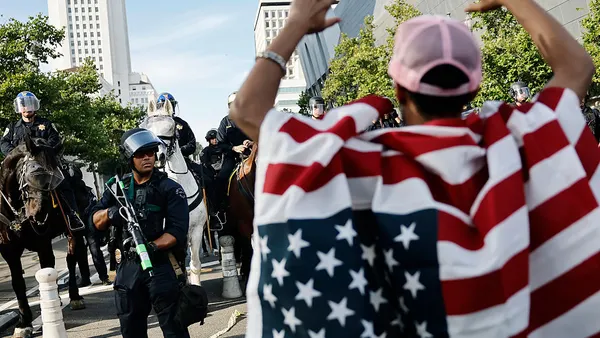Dive Brief:
- Recruiting in 2020 will be shaped by the beginning of a "culture-first decade", continued prioritization of diversity and inclusion jobs, adjustments for a workforce where workers aged 65+ are the fastest-growing segment, and increased adoption of mobile devices by job seekers, among other trends, according to a new survey from Glassdoor.
- Based on data from its platform, Glassdoor projected a number of trends relevant to talent professionals, particularly regarding tech, managing applicants and how the political climate will prompt employers to take stands on issues in 2020. The job board and company rating site identified eight HR recruiting trends for 2020 and beyond.
- According to Glassdoor's analysis, recruiting trends next year will be impacted by uncertainty driven by several factors including: the potential for economic slowdown; the U.S.-China trade war and its effect on hiring for manufacturing jobs; and failed high-profile U.S. tech IPOs. Employee culture, also, will become a business priority, Glassdoor said.
Dive Insight:
The talent shortage is a top risk for employers, prompting new approaches to talent acquisition. And although studies still point to money as the greatest motivator among workers and job seekers, more than half of Glassdoor's respondents in a previous survey said they value culture over compensation. Employers have responded by making employee engagement a priority through diversity and inclusion, effective onboarding, retention efforts, and other employee-focused tactics.
Allowing workers space to bring their whole selves to work has shown to be an important part of working for an employer, especially among young employees. The growing political atmosphere, however, may have created some disconnects.
A Clutch survey found that while employees under age 35 recognized the difference between talking politics in the office and speaking their minds on their own time, nearly half don't think employers should restrict them from expressing their political beliefs or commentary on social media. Yet, workers also say they value the distinction between their work and personal lives. A separate Clutch survey released in August showed that only 24% of workers agreed that their employer's views should align with their own.
Regardless of political stature, the "social enterprise" is on the rise, a MetLife survey revealed last year. Workers increasingly want their employers to take on more social responsibility and address societal problems, something that may become a louder demand in 2020.












